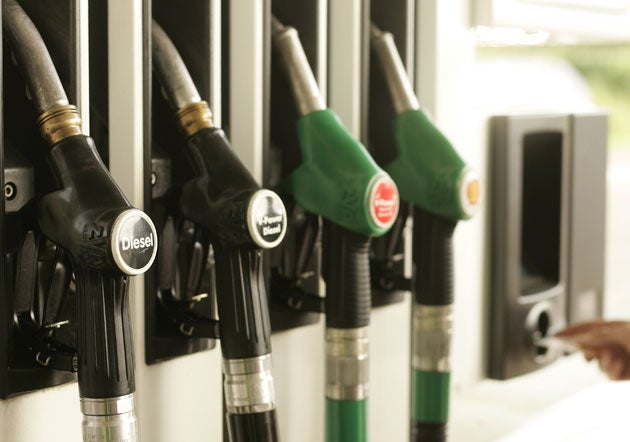Green taxes could help to combat the climate crisis – but they aren’t free of drawbacks
Prince Charles spoke in their favour at Davos, but to ensure they are effective policymakers need to be alive to the dangers, writes James Moore


I found myself in rare agreement with a member of the British royal family – Prince Charles – when he advocated for green taxes during a speech at a Davos dominated by the climate crisis and the debate over how to tackle the greatest challenge of the age.
At a time when we have to clean up or face the consequences, they could prove to be an important part of policymakers’ armoury when it comes to the shaping of an economy that delivers an environment our children can live in.
However, they’re not a magic bullet, as Douglas McWilliams, vice chair of the Centre for Economics and Business Research, makes clear in the think tank’s “Forecasting Eye”. Green taxes can have drawbacks and lead to unintended consequences depending on how, and on whom, they are levied.
His first point was that if they prove effective in discouraging anti-social behaviour, they won’t raise much in the way of revenues. I’m not sure that’s a particular problem and I don’t imagine the prince had revenue raising in mind when advocating for them.
Virtue is its own reward but green taxes offer more than that. Even if they don’t raise raise much in the way of revenues, there will be considerable economic benefits to be had from getting carbon out of the atmosphere. We will also have to deal with considerable economic challenges if we fail at that. And they’ll be just the start of it. Thousands of dead koalas testify to that.
McWilliams’ second point is stronger. He argues that if you use a price mechanism to make people behave in a more environmentally friendly way, you’re going to end up hitting the poorest hardest.
They may have to adjust their behaviours, assuming they can, while those with the most means to cope will have the option of paying up and continuing with their polluting ways.
The taxes are still justifiable on the principle of the polluter pays, but it would be grossly unfair if the burden fall disproportionately on the poorest parts of society.
McWilliams also says you may need to raise taxes by quite a bit to move the dial. He uses the example of fuel duties. How much would you need to raise this levy, frozen since 2011, to cut the number of journeys people make?
This is an interesting question given that 40 per cent of people agreed with the statement “many of the journeys of less than two miles that I now make by car I could easily walk” when the Office for National Statistics posed the question in 2014, just three years into the freeze when the duty was (relatively) quite a bit higher than it is now.
Electric cars are becoming more popular, and there is a carrot because they benefit from low taxes. But they’re still sufficiently expensive to put them out of the reach of the mass market (which again leads to the questions of fairness because the low tax carrot is only available to those who can afford them).
These issues shouldn’t stop the move towards more green taxes. But they surely should feed into the way new levies are designed so that the poor can access the carrots and don’t end up getting unfairly beaten by the sticks.
McWilliams argues that one way of dealing with the hit the poorest members of society could face through higher and more green taxes is to reduce some of the other taxes they have to pay.
Reducing the tax burden on the poor is just a good idea full stop.
Join our commenting forum
Join thought-provoking conversations, follow other Independent readers and see their replies
Comments
Bookmark popover
Removed from bookmarks